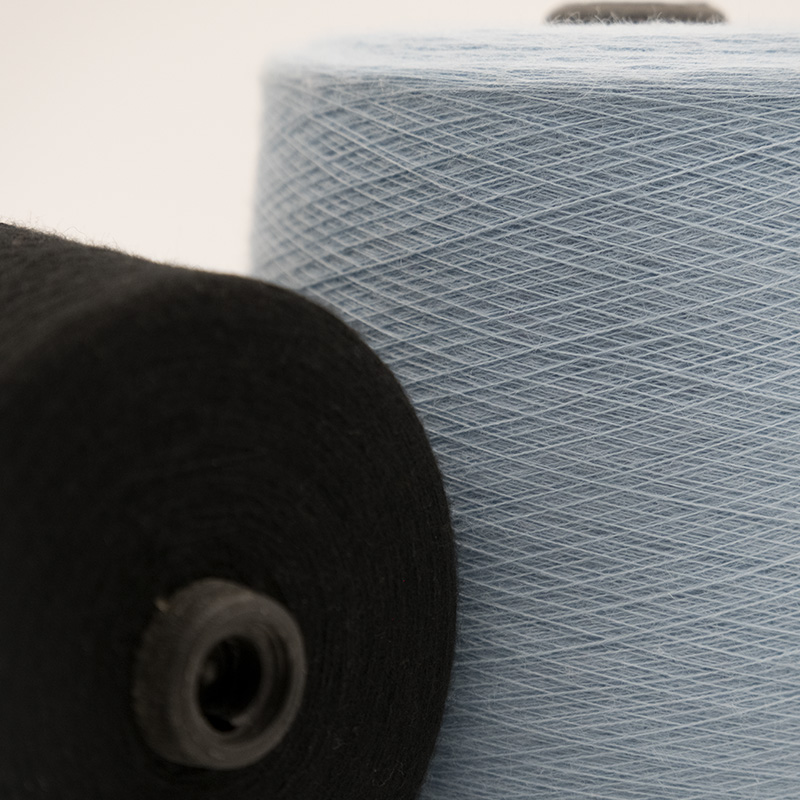How to Test and Ensure the Quality of Eco-Friendly Core Yarns
2025-03-18
Eco-friendly core yarn stands out as a game-changer, offering a balance between environmental responsibility and high-performance fabric production. However, no matter how sustainable a yarn is, it must still meet strict quality standards to be truly viable for large-scale applications. This is where performance testing and quality control come into play. By applying rigorous evaluation methods, manufacturers and buyers can ensure that eco-conscious yarns not only reduce environmental impact but also meet durability, comfort, and reliability expectations.
Performance Testing: Ensuring Durability and Comfort
One of the key challenges in sustainable textile production is ensuring that environmentally friendly materials do not compromise performance. When testing eco-conscious core yarns, manufacturers focus on several crucial aspects. Abrasion resistance testing is one of the most important, as it determines how well the yarn withstands wear and tear over time. Standardized methods, such as the Martindale test, simulate long-term friction to evaluate the longevity of the yarn when woven into fabrics. Since eco-friendly core yarns often use natural or recycled fibers, ensuring they do not degrade faster than conventional synthetic yarns is a priority.

Apart from durability, tensile strength testing plays a significant role in quality assurance. This test measures how much force a yarn can endure before breaking, which is critical for applications in activewear, upholstery, and industrial textiles. Sustainable fibers like organic cotton and bamboo are naturally soft but may require reinforcement through advanced spinning techniques to improve their strength. Manufacturers often compare their eco-friendly yarns to traditional core-spun yarns to ensure they meet industry expectations.
Another crucial factor in user experience is yarn softness and comfort. While strength is important, textiles made from eco-conscious core yarns must still feel pleasant against the skin. Testing methods such as the Kawabata Evaluation System (KES) help quantify softness, flexibility, and fabric drape, ensuring that the yarn delivers the luxurious feel that consumers expect from sustainable fashion and home textiles.
Quality Control: Maintaining Consistency in Eco-Friendly Core Yarns
Beyond initial performance testing, ongoing quality control is essential to maintain consistency across production batches. One of the biggest challenges with sustainable materials is that their raw components—such as recycled polyester fibers—may vary slightly in composition depending on sourcing. Strict batch testing is necessary to ensure that each spool of yarn meets the same performance standards as the last.
Moisture content is another factor that influences both the durability and workability of yarns. Many eco-friendly materials, particularly bamboo and organic cotton, are naturally more absorbent than synthetic fibers. Moisture control testing helps manufacturers determine whether the yarn has the right balance of humidity to prevent brittleness or mold growth during storage and processing.
Finally, eco-certifications and compliance testing are vital in proving that sustainable claims are backed by measurable standards. Many textile manufacturers submit their eco-friendly core yarns to third-party organizations such as OEKO-TEX, GOTS (Global Organic Textile Standard), and Bluesign to verify that their products are free from harmful chemicals and produced under environmentally and socially responsible conditions. This step is crucial in building trust with eco-conscious brands and consumers who seek transparency in their textile choices.
The Future of Sustainable Yarn Quality
As the demand for sustainable textiles continues to grow, innovations in yarn testing and quality control will evolve alongside it. Cutting-edge technologies such as AI-driven defect detection and biodegradable polymer enhancements may soon play a role in refining the durability and performance of eco-friendly core yarn. By continuously improving testing methods and ensuring rigorous quality standards, manufacturers can guarantee that sustainability never comes at the expense of excellence.



 English
English русский
русский Español
Español 中文简体
中文简体

















